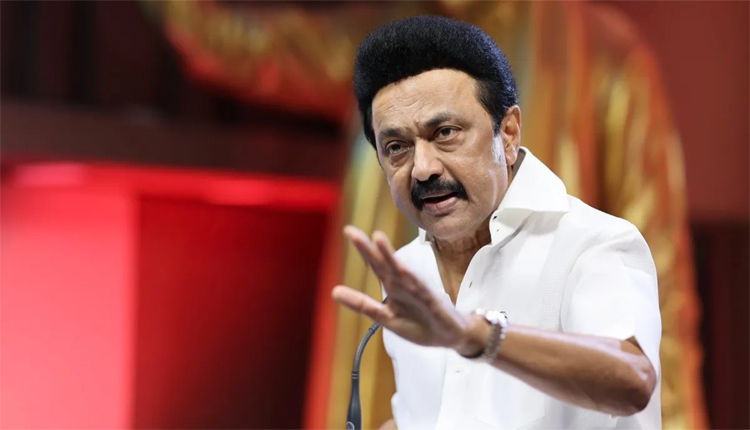Chennai: Tamil Nadu Chief Minister and Dravida Munnetra Kazhagam (DMK) president MK Stalin has voiced strong opposition to the central government’s ambitious ‘One Country, One Election’ proposal, describing it as an impractical and diversionary tactic. Speaking out against the government’s plans, Stalin highlighted the complexities inherent in India’s diverse electoral landscape and the potential undermining of federal principles.
In a post on social media platform X (formerly Twitter), Stalin stated, “One nation, one election is an impractical proposition that ignores the complexities of India’s diverse electoral system and undermines federalism.” He further elaborated, “This is logistically impractical given the huge gap in election cycles, regional issues, and governance priorities.”
Stalin emphasised that synchronising elections across the nation would disrupt the natural processes of governance, stating, “One Nation One Election will require unrealistic alignment of all posts, thereby disrupting the natural process of governance.”
Attacking the central government, Stalin asserted that the essence of Indian democracy cannot be subverted for the benefit of a single party. “The democracy of India cannot be bent to the greed of any one party. Instead of wasting energy on these diversionary tactics, the central government should focus on burning issues like unemployment, price rise, and equitable distribution of resources to states,” he added.
The proposal for ‘One Country, One Election’ received cabinet approval on Tuesday, as announced by Union Information and Broadcasting Minister Ashwini Vaishnaw. Vaishnaw revealed that the committee headed by former President Ram Nath Kovind had submitted its report to President Droupadi Murmu, which has now been accepted by the cabinet.
According to government representatives, the ‘One Nation, One Election’ initiative has garnered support from 32 out of 47 political parties. The plan entails conducting elections at all levels in two phases: the first phase would involve simultaneous elections for the Lok Sabha and state Legislative Assemblies, while the second phase would see concurrent elections for panchayats and municipal corporations.
However, implementing this proposal faces significant hurdles. Constitutional amendments are required to align the electoral cycles, necessitating the support of not only the majority in both houses of Parliament but also the consent of state legislatures—a formidable hurdle given the current political landscape.
With the BJP-led National Democratic Alliance (NDA) securing 293 seats in the 543-member Lok Sabha and 119 seats in the 245-member Rajya Sabha, the opposition’s formidable presence—comprising 205 members across various parties including the Congress, Samajwadi Party (SP), Rashtriya Janata Dal (RJD), and Shiv Sena—poses a significant barrier. Achieving the necessary two-thirds majority in both houses remains challenging, especially with regional parties fiercely opposing the initiative.
Furthermore, gaining approval from state legislatures presents another layer of difficulty. While BJP-ruled states are likely to support the initiative, opposition-controlled states led by parties like the Trinamool Congress (TMC), Congress, and the Left Front are expected to resist, as seen in previous legislative actions against measures like the Citizenship Amendment Act (CAA) and the National Register of Citizens (NRC).
Critics, including Stalin, argue that synchronised elections could marginalise regional parties, which often play pivotal roles in addressing local issues and representing diverse interests across India’s vast landscape. “In India, Lok Sabha and Assembly elections are fought on different issues. Simultaneous elections would change the voting patterns and harm regional parties,” Stalin remarked.
Union Minister Ashwini Vaishnaw acknowledged the challenges but reiterated the government’s commitment to building a consensus. “We will try to build a consensus in the next few months. Our government believes in building consensus on issues that affect democracy and the nation in the long run,” Vaishnaw stated. He added that high-level discussions involving leaders like Rajnath Singh, Kiren Rijiju, and Arjun Ram Meghwal are underway to consult all parties and groups.
As the Modi government seeks to navigate these complexities, the future of ‘One Country, One Election’ remains uncertain. The initiative promises to streamline the electoral process and reduce election fatigue, but the path to implementation is fraught with political, constitutional, and logistical challenges.
With elections looming, all eyes are on the legislative maneuvers and state-level negotiations that will determine whether this landmark electoral reform can transcend opposition and realise its ambitious vision.



Comments are closed.